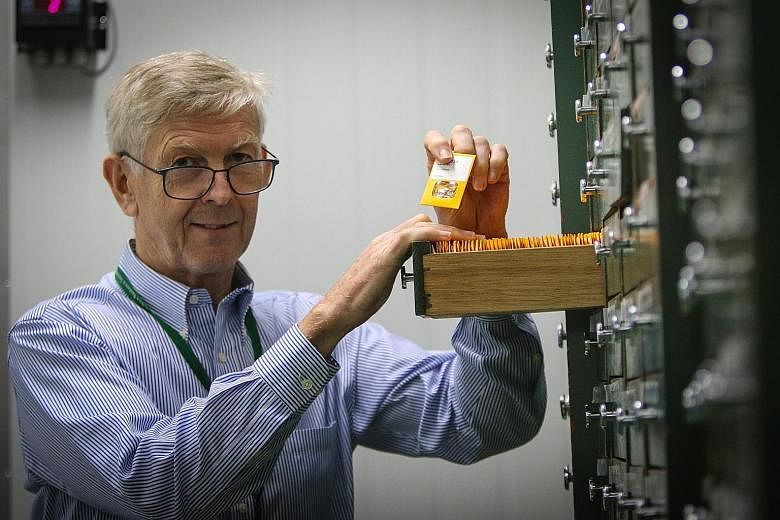The grain that feeds half the world has been given a boost to ensure it never dies out.
Almost $2 million each year will be pumped into a rice repository - a genetic treasure trove of 136,000 rice varieties - to conserve and distribute them to the countries that depend on rice.
At a time when harvests have plateaued and there are more mouths than ever to feed, research into the different grains could produce super rice which can thrive in the harsher weather brought about by climate change.
Crop Trust, the Germany-based international organisation whose mission is to ensure the survival of plants the world feeds on, will fund the International Rice Research Institute (Irri) to the tune of US$1.4 million (S$1.9 million) a year.
While funding goals will be revised every five years, Crop Trust has said it will permanently bankroll the endeavour.
Irri is an international organisation dedicated to reducing poverty and hunger through rice science. It holds the genes of 136,000 types of rice in Los Banos in the Philippines.
The two bodies met at Marina Bay Sands to sign the agreement on World Food Day yesterday, during the 5th International Rice Congress.
From next year to 2023, Crop Trust's funding will be used to cover the rice institute's essential operations, including the conservation, regeneration and distribution of its cultivated and wild seed collections.
Crop Trust executive director Marie Haga said: "This is a landmark moment for Irri and for Crop Trust. At a time when many donors have increasingly complex demands on their resources, it's important that the world's crop collections are safe, secure, and the gene banks functioning effectively."
The issue of climate change and its impact on rice is evident, say experts.
In order to prevent catastrophes, including falling crop yields, deadlier weather extremes, habitat loss and ever higher sea levels, the Intergovernmental Panel on Climate Change said that deep emission cuts are needed before 2030.
On Oct 8, the United Nations' climate panel released a report pointing out that the world needs to lower its global warming limit from 2 deg C to 1.5 deg C. One of its coordinating lead authors argued that the effects of climate change would be exponentially more dramatic above 1.5 deg C.
Scientists worldwide have been using the seeds stored at the rice institute's high-tech facility in Los Banos to develop improved rice varieties that can withstand the impact of climate change while keeping pace with the growing world population.
The institute's scientists have already used rice samples in the bank to develop varieties capable of handling drought and flooding, which are threatening production in key rice-producing regions in Malaysia, the Philippines, Vietnam and China.
A particularly exciting variety is called "scuba rice". It can withstand flooding for up to two weeks, unlike most rice varieties which die within days of being submerged under water. This scuba rice variety is currently being grown by five million farmers in Indonesia, the Philippines, India, Bangladesh, Nepal and Laos. Researchers are adapting scuba rice for Africa as well.
Evolutionary biologist Ruaraidh Sackville-Hamilton, who manages the rice institute's gene bank, said: "Everyone in South-east Asia will benefit from this, as it ensures that rice can continue to be improved and adapted to meet local nutritional needs of our growing population, despite the challenges of climate change.
"With this collection safely conserved, we can continue to use it to develop improved rice varieties that farmers can use to respond to the challenges in rice production, and to adapt to the changing tastes and preferences of consumers everywhere."


